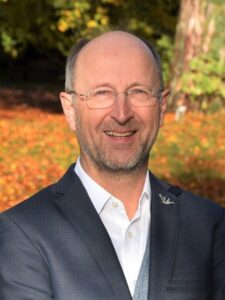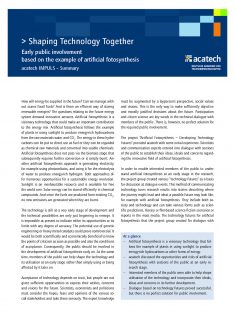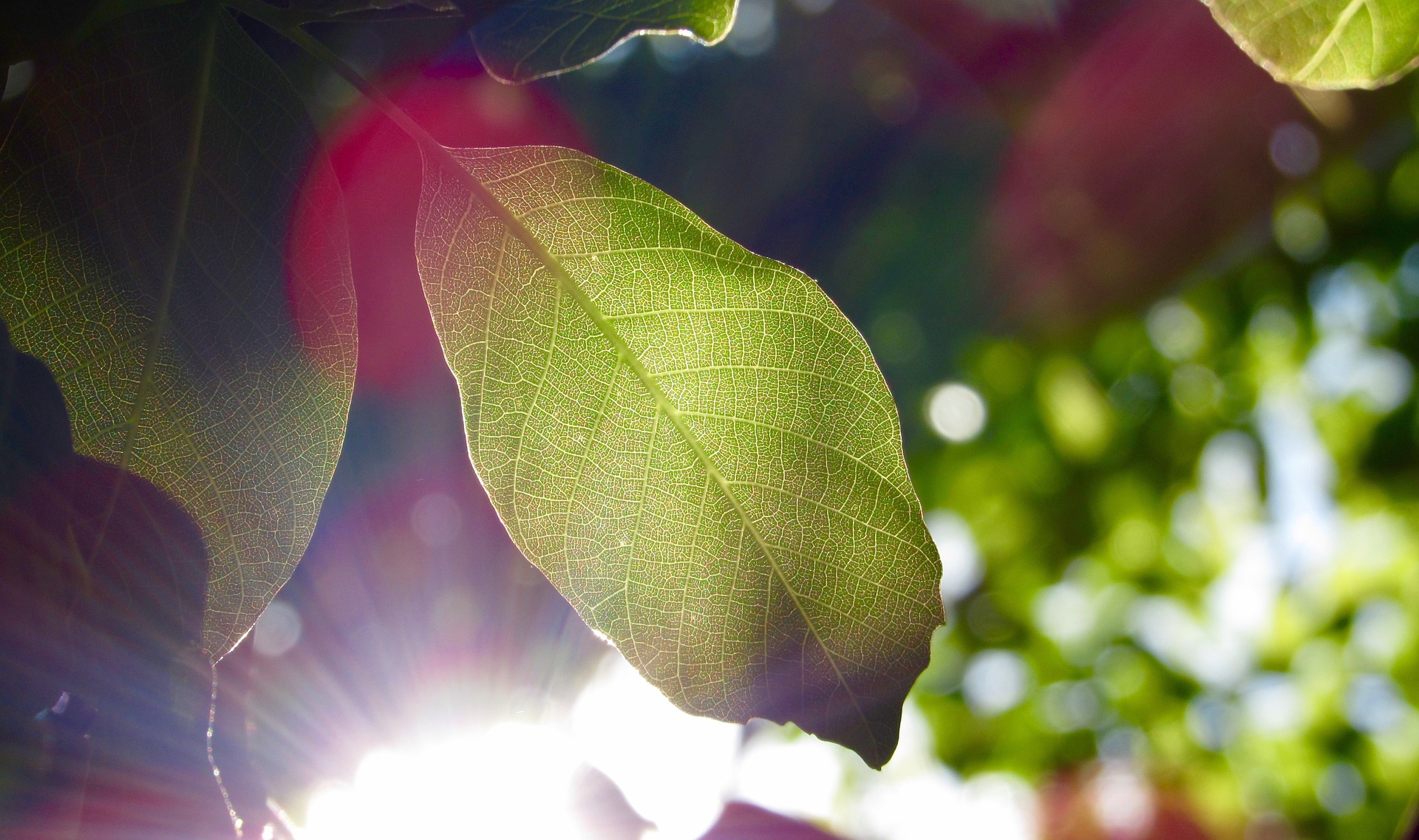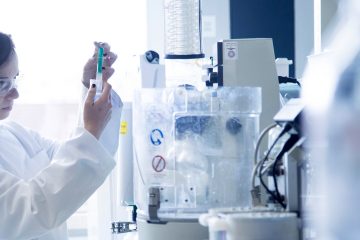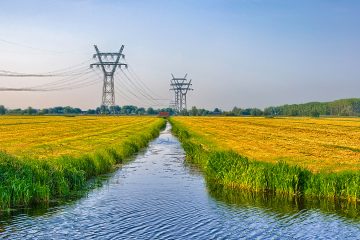Junior Science Café in Aalen: what is artificial photosynthesis?
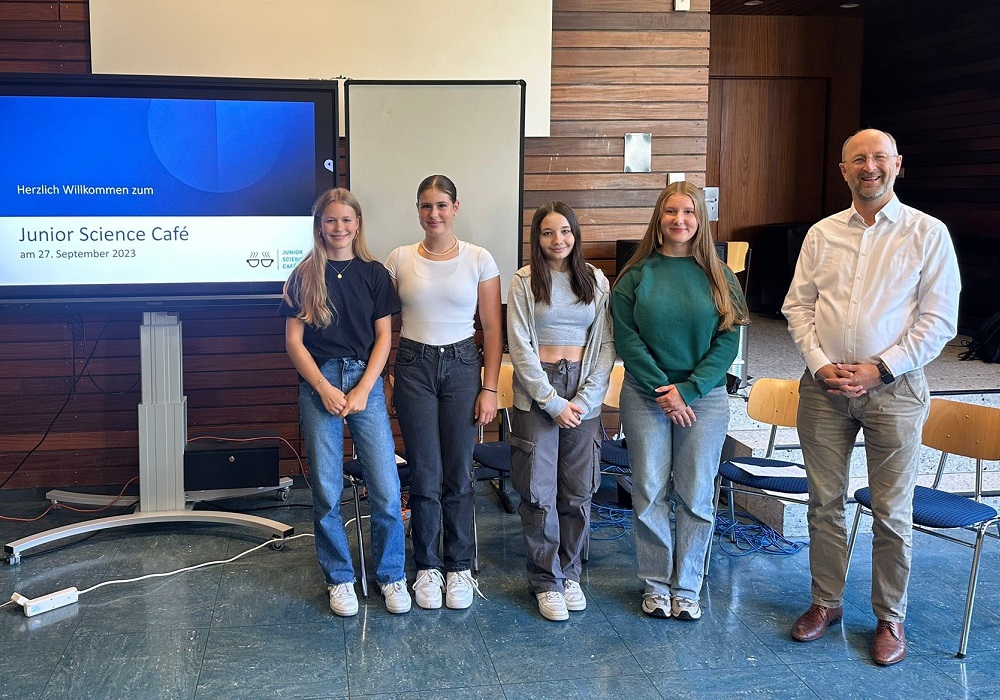
Aalen, 05 October 2023
On 27 September, the Junior Science Café took place for the fifth time at the Theodor-Heuss-Gymnasium in Aalen. A working group, consisting of class 10a pupils under the direction of the two teachers Nora Ebert and Diana Wittmann, invited interested pupils to a scientific debate at 2 p.m. in the school hall.
First, pupils from class 10a explained the process of natural photosynthesis, before going into the topic of this year’s Junior Science Café: artificial photosynthesis. This is a fascinating chemical process whereby various products, such as fuel, chemicals or carbohydrates (as well as oxygen), are created from sunlight, carbon dioxide and water. The chemical change is therefore the same as natural photosynthesis.
Marc-Denis Weitze from the acatech office was invited as the expert. He explained the vision that has been amazing chemists for over 100 years, and clarified the context: despite renewable energy, we continue to be dependent on fossil fuel, coal and natural gas today. These fossil fuels formed millions of years ago: plants stored solar energy through the use of photosynthesis. In fact, the energy contained in sunlight, hitting the Earth for just one hour is enough to cover the global need for energy for an entire year. So why not simply copy Mother Nature and harness solar energy by means of artificial photosynthesis?
Marc-Denis Weitze put forward the various arguments for working on artificial photosynthesis: it is certainly not just about reducing carbon emissions, but also about other aspects such as avoiding harm to the environment, which is caused by mining for fossil fuels, or reducing geopolitical dependencies. And he highlighted the challenges, for instance in the area of catalysis research.
Even if artificial photosynthesis is technically feasible – in maybe 20 or 30 years´ time – it will not solve all our energy problems. In fact, it will even create new problems. If there are more positives than negatives, however, artificial photosynthesis can play a substantial part in sustainable energy supply, according to Marc-Denis Weitze. Science provides the options – society decides what is implemented.
Further information
Project website (in German)


